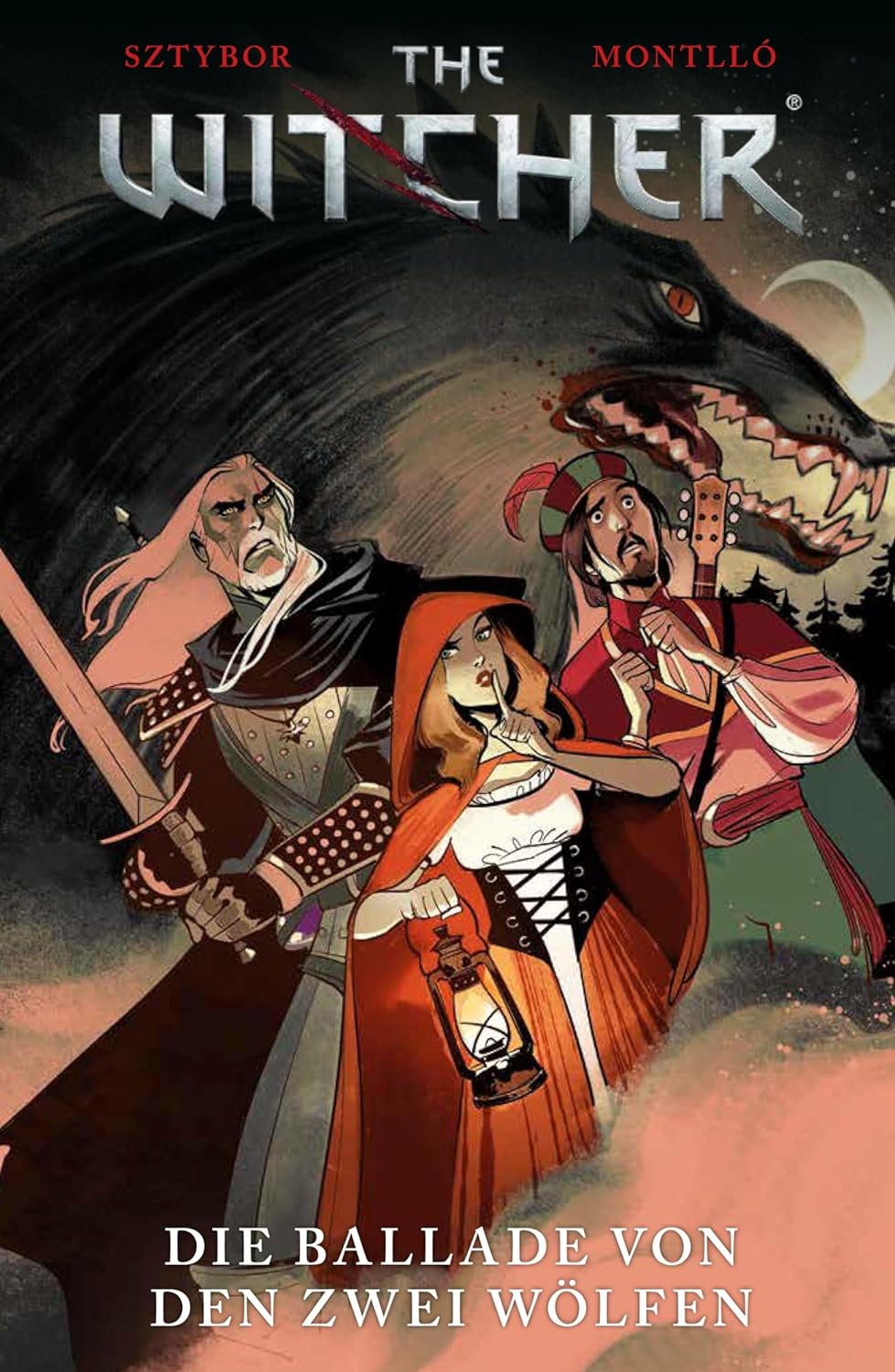Geralt’s latest comic adventure parodies Little Red Riding Hood – and we get a look under the not-so-red, but still bloody, hood.
Contents (fuss)
Monster-hunting wizard Geralt and his musician friend Dandelion travel the lands, always searching for monsters worthy of a bloodbath and a song. Their path eventually leads them to Grimoald, a small town in the mountains. Three greedy sisters plague the hinterland, as does a wandering werewolf. Once Geralt and Dandelion take matters into their own hands with sword and lute, they realize that no one in Grimoald is telling them the whole truth, and there may be more than just one monster…
criticism
The cover, which features Geralt, Dandelion, and Little Red Riding Hood as well as a wolf in the background, reveals that this comic is a variation of the fairy tale of the same name. Strictly speaking, even the title reveals a crucial development – at least if you pay attention to it.
Technically, the graphics are fairly simple. There are a lot of monochromatic surfaces, including backgrounds, and the characters look a bit chunky and angular. Although you can at least understand what’s going on with the characters to some extent, you’ve undoubtedly seen better graphics overall. However, in previous Witcher comics, the styles have always been kept in a similar style. Either way, the same applies here: after a while you get used to the style.
The actual story itself has some twists and turns, which I don’t even want to mention here. Just this much: Of course it’s not a 1:1 retelling of Little Red Riding Hood and the big bad wolf didn’t eat grandma either. However, Geralt and Dandelion go in search of a wolf. The fact that many things are not what they seem and that people themselves are usually the biggest enemies is exactly what Sapkowski always wanted to express in his Witcher stories.
Here Geralt acts exactly as we know him: the monster doesn’t kill blindly, because if you can talk, Geralt will too. But if you trick him or don’t listen to him, he can become vengeful and quickly kill his enemies. And that’s exactly the Geralt we get here, along with his ability to charm women.
Other characters, including villains, also get some background, but none come close to Geralt’s depth. Otherwise, the detective story can be quite convincing in places and sets up some false paths that lead to the solution. It’s so good that you don’t realize where the real wind is blowing until shortly before the end, although there aren’t many options in the strict sense. However, some things, like the aforementioned novelty, are resolved interestingly. One almost wishes it were more detailed, because what happens next is certainly a legitimate question.
But the ending was a bit shocking (not exactly, by Witcher standards, but you know what I mean). As with other series like “The Dark Tower” or “Supernatural,” anyone who wants a happy ending should stop reading two pages before the end. This is done beautifully here with Delphinium, who every now and then weaves in lyrics, which basically describe the good ending to the story. In fact, everything ends bitterly and tragically and that’s not all, the volume actually ends at this very moment, leaving the reader to their own thoughts – a powerful ending.

“Explorer. Communicator. Music geek. Web buff. Social media nerd. Food fanatic.”






More Stories
Katy Perry's “American Idol” Finale – Final Performance Video
Physicists finally confirm Einstein's startling predictions about black holes: ScienceAlert
Chiefs Patrick Mahomes joined Travis Kelce on stage at Kelsey Jam